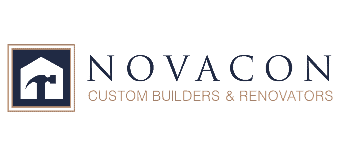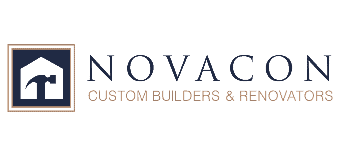Are Custom-Built Homes Better Quality Than Pre-Built Homes?
Custom-built homes offer superior personalization, material selection, and craftsmanship control, but they require more time, involvement, and often higher investment. Pre-built homes provide predictable costs, faster move-in times, and proven designs, but with limited customization options and standardized materials.
The answer isn’t simply yes or no – it depends on your priorities, budget, and definition of quality
The Greater Toronto Area’s diverse housing market offers both options, each with distinct advantages. Custom-built homes allow you to create spaces perfectly suited to your family’s needs, Toronto’s climate challenges, and your specific lot characteristics. Pre-built homes offer the convenience of established neighborhoods with amenities already in place, allowing you to move in quickly without the stress of construction decisions.
Understanding the true differences between these approaches helps you make the right choice for your situation. Quality in housing encompasses more than just materials and construction – it includes how well the home serves your lifestyle, adapts to your changing needs, and performs in Toronto’s demanding climate conditions.
Understanding Quality in Home Construction
Defining Quality Beyond Materials
Quality in home construction extends far beyond the materials used or the craftsmanship visible on the surface. True quality encompasses durability, functionality, energy efficiency, and how well the home serves its occupants over time. In Toronto’s climate, quality also means how effectively the home handles extreme temperature variations, moisture management, and seasonal changes that stress building systems.
Custom-built homes typically excel in quality control because every decision is made specifically for that project. From foundation design suited to specific soil conditions to window placement that maximizes natural light while minimizing heat loss, custom homes can address site-specific challenges that pre-built homes might compromise on to maintain standard designs.
The quality equation also includes long-term performance and maintenance requirements. Custom homes designed for Toronto’s climate can incorporate features like superior insulation, high-performance windows, and mechanical systems sized precisely for the home’s needs. These choices often result in lower operating costs and reduced maintenance over the home’s lifetime.
Craftsmanship and Attention to Detail
Custom home construction allows for higher levels of craftsmanship because each element receives individual attention rather than being part of a production process. Skilled tradespeople working on custom projects can take time to ensure perfect fits, superior finishes, and attention to details that might be overlooked in volume construction.
The ability to work directly with craftspeople during construction allows for real-time quality control and adjustments. If a custom home builder discovers better solutions during construction, changes can be implemented immediately. This flexibility often results in superior outcomes compared to pre-built homes where changes are costly or impossible once construction begins.
However, this advantage depends heavily on choosing experienced professionals who understand both quality construction techniques and Toronto’s specific building requirements. The custom home builder’s expertise and commitment to quality ultimately determine whether the finished product truly delivers superior quality.
Material Selection and Sourcing
One of the most significant quality advantages of custom homes lies in material selection. Rather than accepting whatever materials the builder has chosen to maximize profit margins, custom home clients can select materials based on performance, aesthetics, and long-term value. This might mean choosing locally sourced hardwood that performs well in Toronto’s humidity variations or selecting insulation materials that provide superior thermal performance.
The ability to research and select materials also allows for avoiding products with known performance issues or health concerns. Custom home clients can choose low-VOC finishes, formaldehyde-free insulation, and materials with proven durability records. This level of control over material selection is rarely possible with pre-built homes where material choices are made to meet budget targets rather than optimize performance.
Cost Considerations and Value Proposition
Initial Investment Differences
The upfront cost difference between custom and pre-built homes varies significantly based on choices made during the design process. Custom homes can cost more than comparable pre-built homes when clients choose premium materials, complex architectural features, or oversized spaces. However, custom homes can also cost less when designed efficiently and built without unnecessary features that inflate pre-built home prices.
The key advantage of custom construction lies in spending money on features that matter to you while eliminating costs for features you don’t need. Pre-built homes include standardized features that may not align with your priorities, essentially forcing you to pay for elements you don’t value while lacking features you do want.
In Toronto’s market, custom homes often provide better value per square foot when comparing similar quality levels. Pre-built homes include builder profit margins and sales costs that can be eliminated when working directly with a custom home builder. The savings can be reinvested in higher-quality materials or additional features that enhance the home’s long-term value.
Long-Term Financial Benefits
Custom homes typically offer superior long-term financial performance through reduced operating costs and maintenance requirements. Energy-efficient design, high-quality materials, and systems sized appropriately for the home’s needs result in lower utility bills and fewer repair costs over time.
The customization advantage also provides financial benefits through better space utilization. Custom homes can maximize usable space while minimizing wasted areas that add construction costs without providing value. This efficiency often results in smaller homes that feel more spacious and cost less to build and maintain than larger pre-built homes with inefficient layouts.
Resale value considerations in Toronto’s market often favor well-designed custom homes that offer unique features and superior quality. While pre-built homes provide predictable value, custom homes that address specific market needs or offer exceptional quality can command premium prices when sold.
Financing and Budget Control
Custom home construction offers more control over budget allocation, allowing clients to prioritize spending on features that matter most to them. This might mean investing more in structural elements and energy efficiency while choosing more modest finishes that can be upgraded later. Pre-built homes don’t offer this flexibility, requiring acceptance of the builder’s choices for both high and low-priority elements.
The construction loan process for custom homes requires more involvement but also provides oversight of where money is spent. Draw schedules tied to construction milestones ensure funds are released as work progresses, providing accountability that isn’t available when purchasing pre-built homes.
Customization and Personalization Advantages
Tailored Design for Your Lifestyle
The most compelling advantage of custom-built homes lies in their ability to perfectly match your family’s lifestyle and needs. Rather than adapting your life to fit a pre-built home’s layout, custom homes adapt to serve your specific requirements. This might mean creating a home office that doubles as a guest room, designing a kitchen that accommodates your cooking style, or creating multi-functional spaces that serve different purposes throughout the day.
Toronto families often have unique needs based on climate, commuting patterns, and lifestyle preferences. Custom homes can incorporate features like mudrooms designed for Toronto’s winter weather, garages heated to prevent freezing, or outdoor spaces designed to maximize use during the city’s limited warm season. These climate-specific customizations are rarely found in pre-built homes designed for broader markets.
The ability to customize extends beyond layout to include storage solutions, technology integration, and accessibility features. Custom homes can incorporate built-in storage that maximizes space efficiency, pre-wiring for smart home technology, or accessibility features that allow aging in place. These customizations often prove invaluable over time as needs change and technology evolves.
Lot-Specific Optimization
Custom homes excel at making the most of challenging or unique lot conditions that pre-built homes might not address effectively. Toronto’s diverse neighborhoods include lots with unusual shapes, slopes, or orientations that require custom design solutions to maximize usable space and natural light.
The ability to position the home optimally on the lot can provide significant advantages in terms of privacy, views, and outdoor space utilization. Custom homes can incorporate features like courtyards, rooftop terraces, or multi-level outdoor spaces that work with the specific topography and neighborhood context.
Site-specific design also allows for better integration with existing landscape features, mature trees, or neighborhood architectural styles. This thoughtful integration often results in homes that feel more connected to their environment and provide better long-term satisfaction than standardized designs that don’t consider site-specific opportunities.
Future Adaptability
Custom homes can be designed with future needs in mind, incorporating structural elements that allow for easy modifications as life circumstances change. This might mean designing spaces that can be easily converted from playrooms to home offices, or including structural support for future additions without requiring major renovations.
The ability to plan for future modifications during initial construction is often more cost-effective than trying to adapt pre-built homes later. Custom homes can include features like oversized electrical panels, additional plumbing rough-ins, or structural elements that support future renovations without requiring major construction work.
Construction Process and Quality Control
Direct Involvement and Oversight
Custom home construction allows for direct involvement in the building process, providing opportunities for quality control that aren’t available with pre-built homes. Regular site visits, progress meetings, and direct communication with tradespeople enable real-time problem-solving and quality assurance that can prevent issues before they become costly problems.
This involvement also provides educational opportunities for homeowners to understand their home’s systems and maintenance requirements. Knowledge gained during construction often results in better long-term care and maintenance, extending the home’s lifespan and performance.
The transparency of the custom building process allows clients to verify that quality standards are being met at each stage of construction. This oversight capability provides peace of mind that’s difficult to achieve when purchasing pre-built homes where construction details are hidden or unknown.
Skilled Trades and Craftsmanship
Custom home projects often attract skilled tradespeople who take pride in their work and enjoy the challenge of creating something unique. The variety and complexity of custom projects can result in higher-quality workmanship from professionals who are engaged by the creative aspects of the work.
The ability to select tradespeople based on their expertise and reputation provides another quality advantage. Rather than accepting whoever the production builder has contracted, custom home clients can choose specialists who excel in specific areas important to their project.
Long-term relationships between custom home builders and skilled tradespeople often result in better coordination, communication, and quality outcomes. These established relationships can provide advantages in scheduling, problem-solving, and ensuring consistent quality standards across all trades.
Timeline and Flexibility
While custom homes typically take longer to complete than pre-built homes, the construction timeline can be more flexible and accommodating to specific needs. Seasonal considerations important in Toronto’s climate can be incorporated into the construction schedule, such as timing exterior work to avoid harsh winter conditions or scheduling interior finishes during periods when quality control is easier.
The ability to make changes during construction, while potentially affecting timeline, allows for optimizing the final product based on discoveries made during the building process. This flexibility can result in better solutions and higher quality outcomes than rigid adherence to original plans.
Making the Right Choice for Your Situation
Evaluating Your Priorities
The decision between custom and pre-built homes ultimately depends on your priorities, timeline, and involvement preferences. Custom homes provide maximum control and personalization but require more time, energy, and decision-making throughout the process. Pre-built homes offer convenience and predictability but with limited ability to customize the final product.
Consider your long-term plans and how important personalization is to your satisfaction with your home. If you value having every detail reflect your preferences and lifestyle, custom construction likely provides better value despite potential higher initial costs. If you prefer convenience and faster occupancy, pre-built homes might better serve your needs.
Your tolerance for construction involvement and decision-making also influences the best choice. Custom homes require numerous decisions throughout the process, while pre-built homes limit choices to predetermined options. Some homeowners find the custom process rewarding, while others prefer the simplicity of limited choices.
Working with Experienced Professionals
Success with custom home construction depends heavily on working with experienced professionals who understand both quality construction techniques and Toronto’s specific requirements. The custom home builder’s expertise, reputation, and commitment to quality ultimately determine whether the finished product delivers the expected advantages over pre-built alternatives.
Research potential builders thoroughly, examining their previous work, client references, and understanding of local building codes and climate considerations. The right partnership with experienced professionals can make the difference between a successful custom home project and a frustrating experience that doesn’t deliver expected results.
Quality custom construction requires coordination between architects, builders, and specialized tradespeople who understand how to work together effectively. The ability to assemble and manage this team of professionals is crucial for achieving the quality and customization advantages that make custom homes worthwhile.
Whether you choose custom construction or pre-built homes, the key is finding the approach that best serves your needs, budget, and lifestyle preferences. Both options can provide quality homes when approached thoughtfully and executed professionally. The decision should be based on your specific circumstances rather than assumptions about which approach is inherently better.
Ready to explore whether a custom-built home is right for your Toronto area project? Novacon Construction is an award-winning design-build contractor specializing in custom homes that seamlessly blend quality craftsmanship with personalized design. Our experience in the Greater Toronto Area ensures your custom home will be built to the highest standards while meeting local building requirements and climate considerations that affect long-term performance and satisfaction.
- When to Start Planning Your Home Addition in Toronto - December 3, 2025
- How Many Dwellings Can I Build On a Single Lot in Ontario? - October 29, 2025
- Home Renovation and Additions in Toronto: Combining Upgrades for Maximum Impact - October 29, 2025








